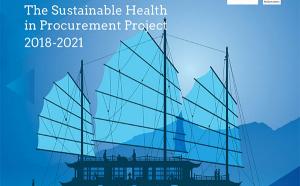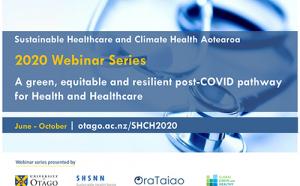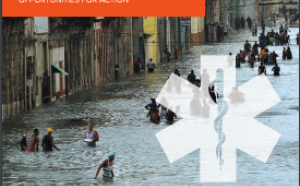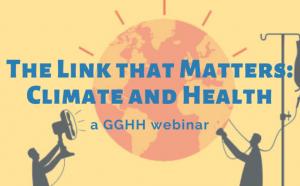Organized by Health Care Without Harm and its Global Green and Healthy Hospitals (GGHH) program, this webinar will present the findings and recommendations from the Health Care Without Harm report on Health care’s climate footprint and showcase the innovative solutions that members of the GGHH network are implementing around the world to take climate action and reduce the climate footprint of the health care sector.
In September 2019 Health Care Without Harm, in collaboration with Arup, published the Health care climate footprint report. The report establishes the first-ever global estimate of health care’s climate footprint, identifies key sources of health care emissions and presents a series of recommendations to put the sector on a pathway to net zero emissions.
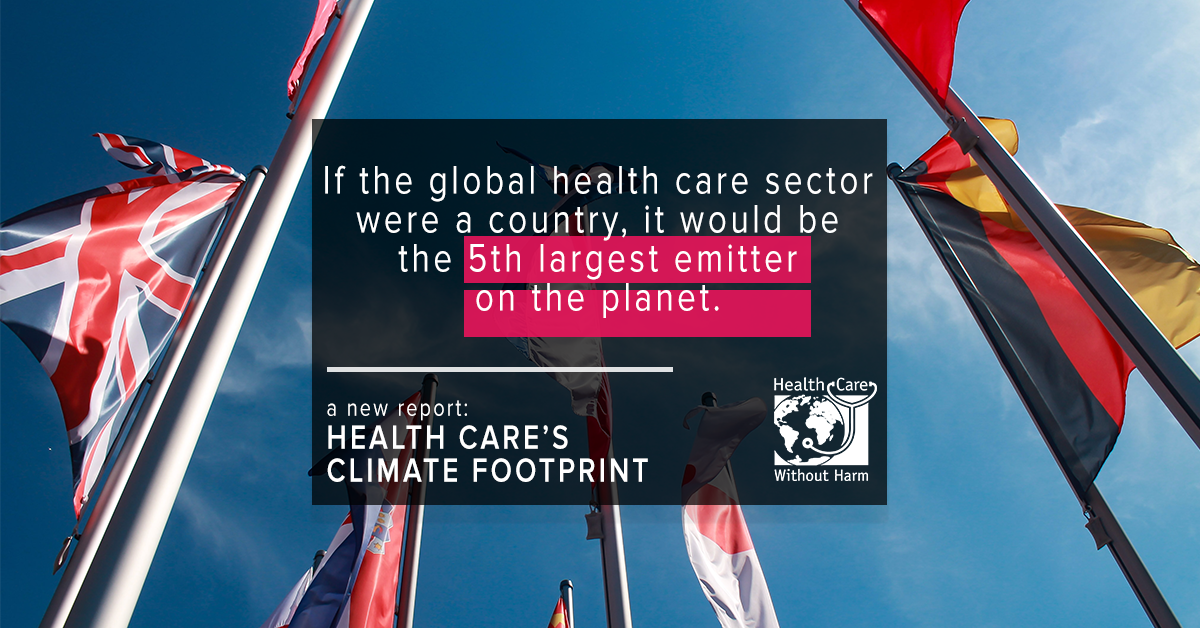
Presenters
Josh Karliner- International Director of Program and Strategy – Health Care Without Harm (Sessions 1 and 2)
Josh Karliner is one of the authors of the Health Care Climate Footprint Report and has coordinated Health Care Without Harm’s global work since 2005.
In this role he has led the creation and development of the Global Green and Healthy Hospitals Network as well as Health Care Without Harm’s global mercury campaign, which, in collaboration with the World Health Organization, helped win the global phase-out of mercury-based medical devices through the Minamata Convention. Today, among other efforts, he is facilitating Health Care Without Harm’s worldwide efforts on health and climate.
Dr. Laura Angeletti du Toit- Chief Director of Infrastructure Management – Western Cape Government Health, South Africa (Session 1)
Dr Laura Angeletti du Toit is Chief Director of Infrastructure Management at the Department of Health, Provincial Government: Western Cape in the Republic or South Africa.
She joined the Provincial Government of Western Cape, Directorate for Health Services in 2001, as a Consultant Architect. In March 2003, she was appointed Senior Manager in the Department of Transport and Public Works – Health Services.
In 2009 she obtained her Honours Degree in Public Administration from the University of Stellenbosch and in April 2010 she was appointed Chief Director of Infrastructure Management at the Department of Health. Laura has been involved in health care design throughout her entire professional career. She is also the author of numerous articles regarding health care facility design.
Manjula Sickler- Sustainability Manager – Auckland District Health Board, New Zealand (Session 2)
Manjula has worked in the health sector for 17 years, with extensive experience in accounting, finance, business development and project management. She now leads Auckland District Health Board’s Sustainability Program. The values based DHB is the largest healthcare providers in New Zealand and is committed to reducing carbon emissions and social inequities that are regarded as precursors to poverty and poor health outcomes.
Under Manjula’s leadership the DHB is regarded as one of the most forward thinking and innovative healthcare organizations in the country. In 2017 it received three silver awards from Green Global Healthy Hospital 2020 Health Care Climate Challenge. In 2018 it received commendation in the Public Sector Award EECA Business Awards. It was named finalists for Sustainable Business Network awards in 2017, 2018 and 2019. In 2019 the DHB was named among the Top 20 Carbon Reducers by Enviro-Mark Solutions with a 28% reduction in GHG over four years and received three gold awards from Green Global Healthy Hospital Health Care Climate Challenge.
When
Session 1: Tuesday, 19 November 2019- Americas, Europe, and Africa
- 7:00 am – Pacific Standard Time
- 10:00 am – Eastern Standard Time
- 12:00 pm – Buenos Aires, Argentina | Sao Paulo, Brazil
- 3:00 pm – Greenwich Mean Time
- 4:00 pm – Central Europe Time
- 5:00 pm – South Africa Standard Time
Session 2: Thursday, 21 November 2019 – Asia and Pacific
- 9:30 am – India Standard Time
- 9:45 am – Nepal Time
- 12:00 pm – Singapore | Beijing, China | Manila, Philippines
- 3:00 pm – Australian Eastern Daylight Time
- 5:00 pm – New Zealand Daylight Time
- 8:00 pm (Wednesday, 20 November) – Pacific Standard Time



